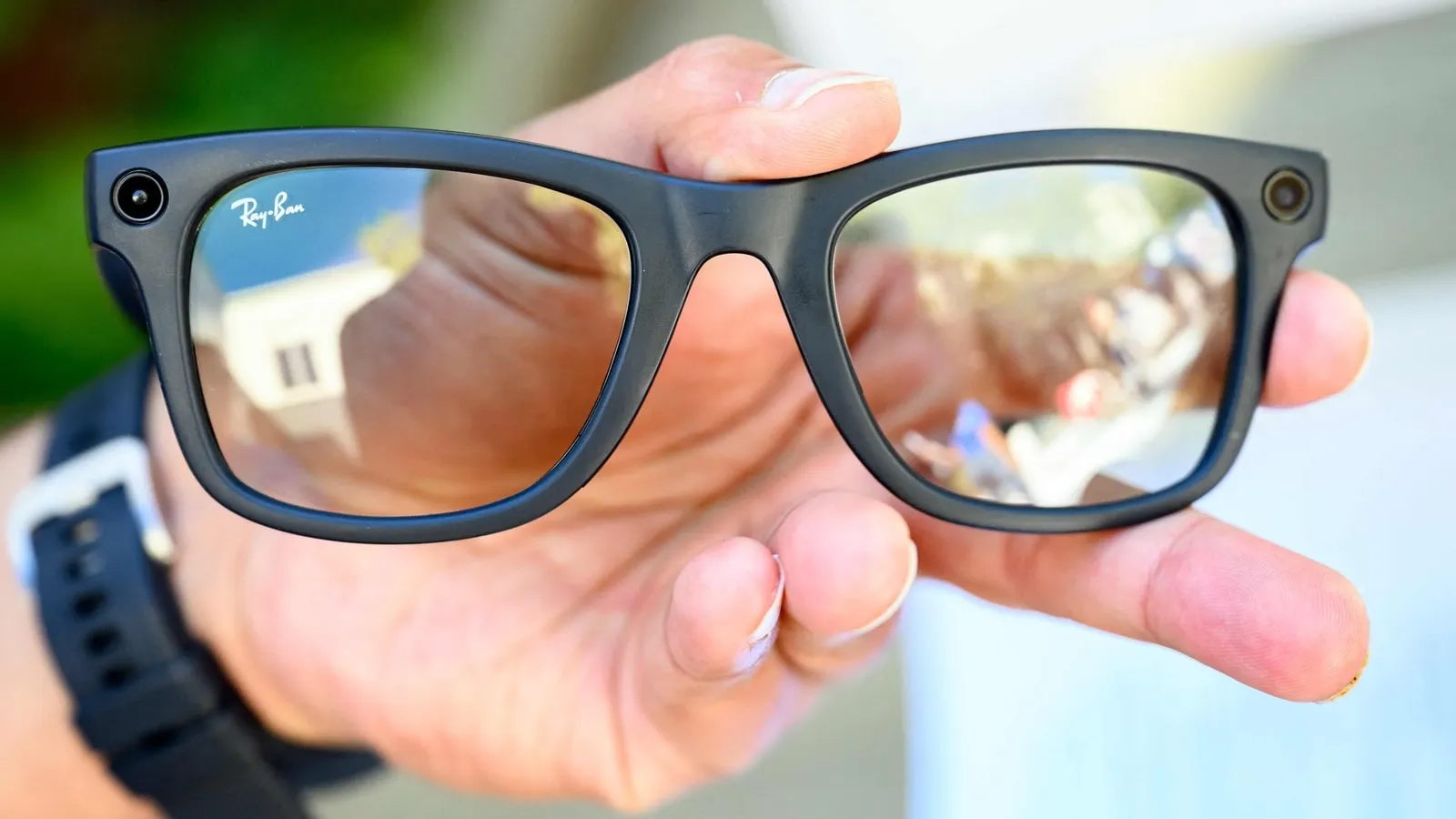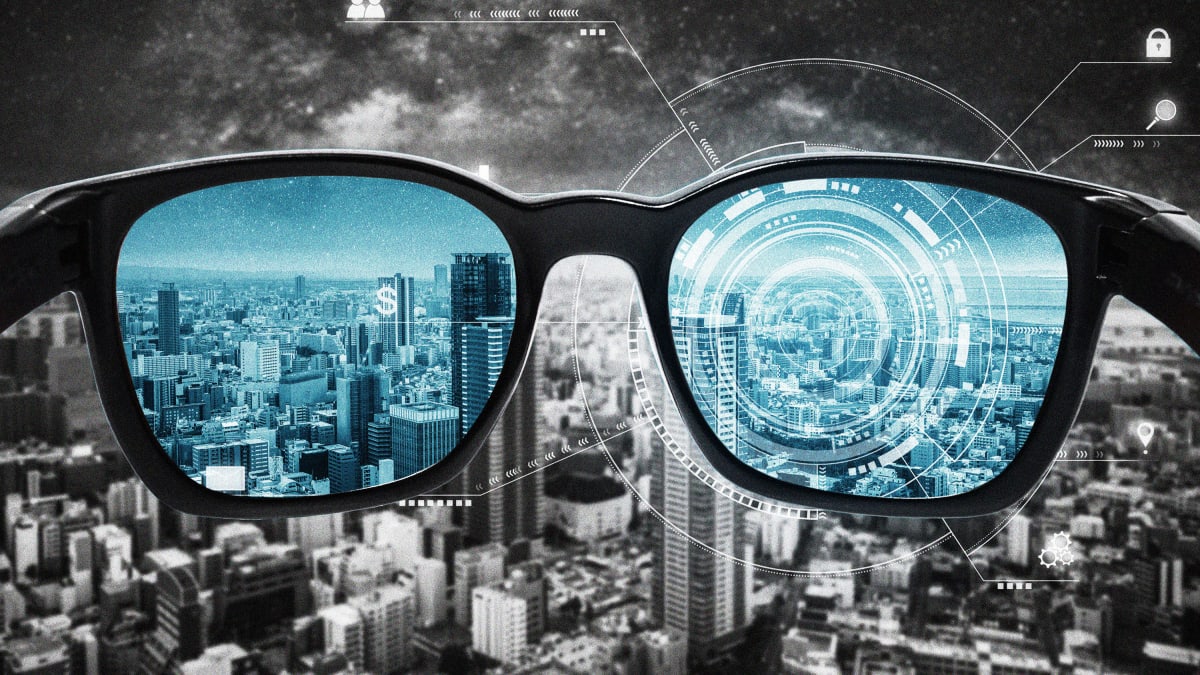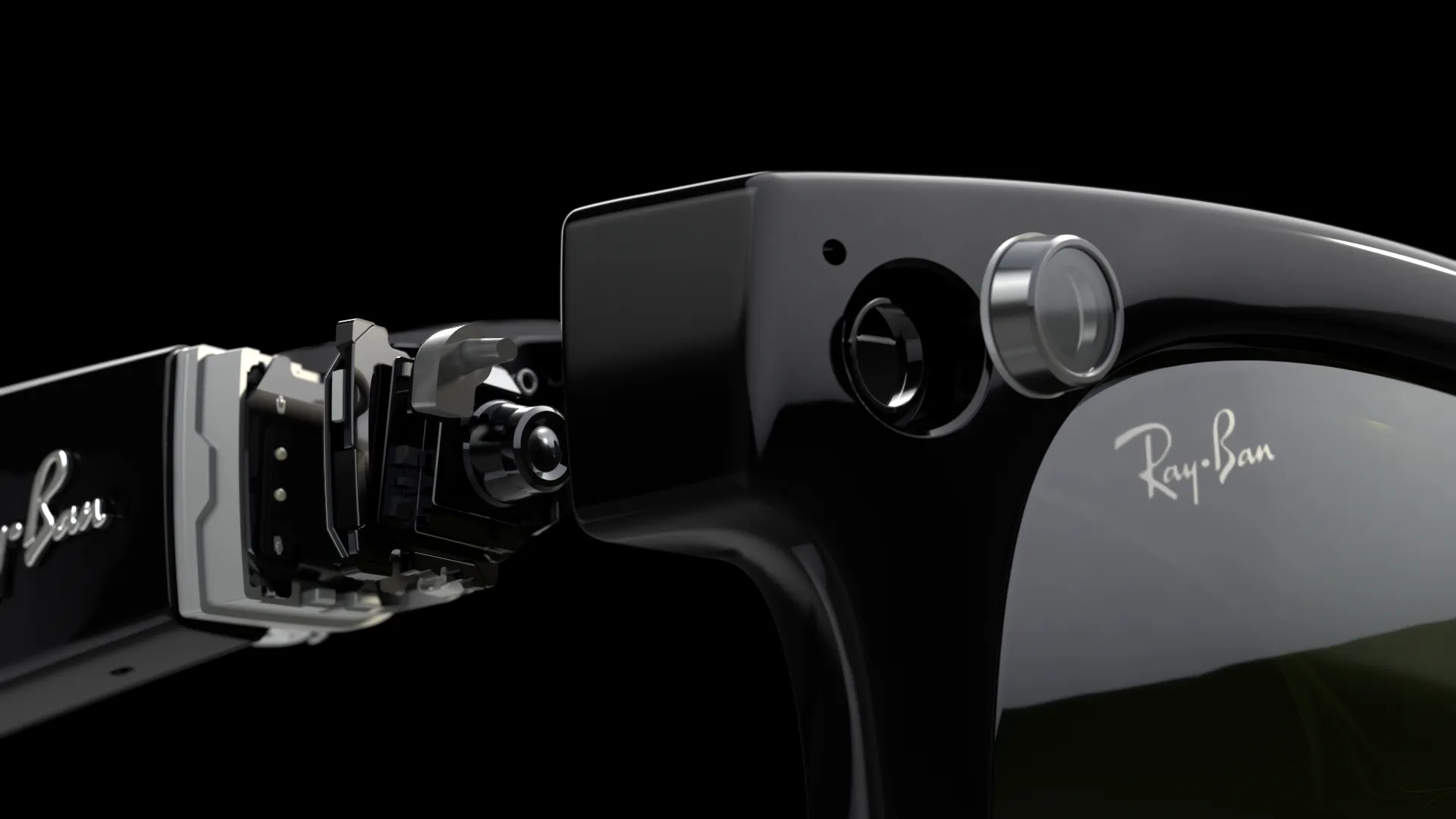Meta, the tech giant synonymous with social media, is reshaping the future of wearable technology. During a recent visit to Meta’s Menlo Park campus, it became abundantly clear that cameras—specifically those integrated into smart glasses—are at the heart of their vision. As the boundaries between the physical and digital worlds blur, Meta aims to make camera-equipped glasses as common as smartphones. The question is: Are we ready for this new reality?

Meta’s Vision: Glasses, Not Phones, as the New Cameras
At Meta’s Connect conference, it felt like stepping into the future. Cameras were everywhere, but not the kind you’re used to seeing. Instead of security cameras or smartphones, it was Meta’s latest smart glasses—designed in collaboration with Ray-Ban—that dominated the scene. These smart glasses, which follow the release of the Ray-Ban Stories in 2021, have received a significant upgrade, particularly in their AI capabilities. While not full-fledged AR glasses (they lack screens), their potential lies in capturing moments—effortlessly and instantaneously.
A World Where Glasses Rule
As I walked around Meta’s campus, I could feel the future staring back at me. Employees sporting the Ray-Ban Meta smart glasses were easy to spot with their two signature circular cutouts for a 12MP ultrawide camera and an indicator light. This light blinks whenever a photo or video is being taken, providing a visual cue to others around that they may be on camera.
While these glasses are aesthetically pleasing, they add a layer of tension to social interactions. The fear of unknowingly being recorded can feel unnerving. It’s one thing to have smartphones capturing every moment, but having cameras right at eye level changes the dynamics entirely.

The Experience of Wearing Meta Smart Glasses
Surprisingly, wearing these glasses flips the script. When I donned a pair of the Ray-Ban Meta smart glasses, my perspective shifted. Initially, I was apprehensive about constantly being filmed by others. But once the glasses were on my face, I found myself tempted to capture more moments. Having a camera literally at eye level is incredibly convenient. With a quick button press, I could record exactly what I was seeing, without fumbling for a smartphone. There’s an undeniable allure in the immediacy of this technology. It opens up a new way to share moments with minimal friction. Whether you’re taking candid photos of loved ones or documenting a spontaneous event, the experience is intuitive.
Cameras Everywhere: Is Society Ready?
Smartphones brought about a cultural shift, and Meta’s camera glasses may usher in the next one. The ease of capturing and sharing has given rise to the documenting of everything—from viral moments to serious social justice issues. But the accessibility of these tools has a dark side. In the same way, smartphones have made it easier to record without consent, camera-equipped glasses could take this even further. With just a glance, it’s now possible to capture and share moments without anyone else realizing it.
While the idea of quickly recording life’s precious moments is tempting—imagine the ease of capturing candid pictures of a growing child without their noticing—it also comes with real risks. What happens when you step outside your door, and every face is potentially recorded? With the increasing use of facial recognition, privacy concerns are more relevant than ever.

A Double-Edged Sword: The Risks of Smart Glasses
There’s a practical issue that Meta hasn’t fully addressed yet: prescription lenses. For those who rely on glasses to see, switching to smart glasses means you’re constantly wearing a camera. This brings up awkward scenarios. For example, do you wear these camera-equipped glasses in spaces like public restrooms, knowing they could capture footage? Most Ray-Ban Meta smart glasses today are sunglasses, but you can opt for clear or transition lenses. As these devices evolve, it’s likely Meta will market them more as everyday wear, making it harder to separate your vision aid from potential privacy concerns.
Smart Glasses: Fun, Functional, and a Little Frightening
It’s undeniable—Meta’s smart glasses are fun to use. But as with any revolutionary technology, there’s a sense of unease. Cameras on phones have brought immense social change, both positive and negative. They’ve empowered people to document injustices but also raised concerns about privacy and security. If smart glasses become mainstream, we could be heading into a world where every moment—whether public or private—is up for grabs. As much as we may enjoy the convenience of hands-free photos, the potential downsides shouldn’t be ignored. When anyone can record anything without drawing attention, our very understanding of privacy might have to be redefined.

Are Camera Glasses the Future?
Meta’s latest push into the world of wearable cameras isn’t entirely new. Companies like Snap tried to introduce camera glasses years ago with limited success. But unlike its predecessors, Meta’s Ray-Ban smart glasses seem poised to make a much more significant impact. With Meta’s immense resources, marketing, and social platform integration, these glasses have the potential to become as ubiquitous as smartphones. But it’s still unclear if the general public is ready to embrace this technology.
The idea of frictionless recording—where you can capture anything with a simple gesture—is powerful. But society must decide whether the convenience of Meta’s camera glasses outweighs the potential invasions of privacy they introduce. For now, Meta’s employees are enthusiastically embracing this future. Whether the rest of us will do the same remains to be seen.
Meta is paving the way for a future where camera-equipped smart glasses could become as essential as smartphones. While the technology offers undeniable convenience and fun, it also brings a new set of privacy concerns that society will have to grapple with. As we move towards this brave new world, the balance between capturing moments and protecting privacy will become ever more critical.









